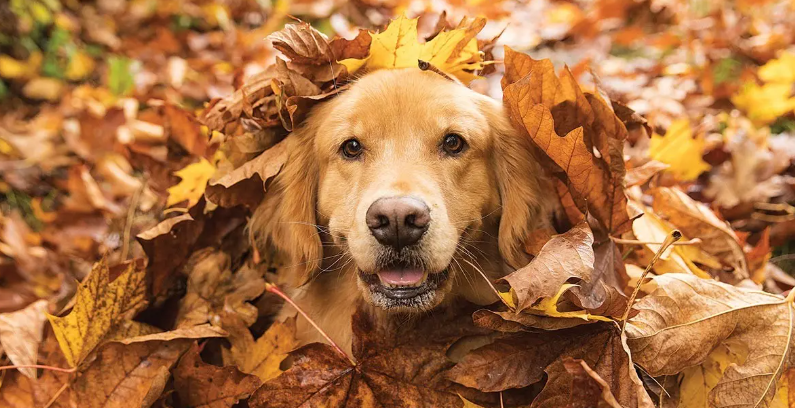Smart Living Starts Here – No Fluff!
Ah, autumn. The season of pumpkin spice, crunchy leaves, and… hidden dangers for your pets? Yep. While you’re busy sipping cider and admiring the foliage, your dog or cat might be eyeing that chocolate bar you dropped or sneaking a nibble of toxic mushroom in the yard. Don’t panic—here’s how to keep them safe without sacrificing your autumn joy. From antifreeze leaks to Halloween candy traps, these autumn pet safety tips will help you navigate the season’s risks while keeping tails wagging.
1. Halloween Candy: Beyond Chocolate and Xylitol
Why it matters: Even small amounts of chocolate, xylitol, or raisins can cause seizures, liver failure, or vomiting.
Your move:
- Store candy in sealed containers and educate kids to avoid dropping wrappers or crumbs.
- Avoid decorations with small parts (e.g., fake cobwebs or plastic spiders) that pets might swallow.
- If your pet ingests something toxic, call the ASPCA Poison Control hotline immediately : (888) 426-4435.
2. Antifreeze: A Deadly Winter Prep Hazard
Why it matters: Antifreeze’s sweet taste lures pets, but ethylene glycol causes irreversible kidney damage within hours.
Your move:
- Clean leaks instantly with absorbent pads, and store containers in locked sheds.
- Watch for symptoms: vomiting, lethargy, or stumbling. Rush to the vet if suspected exposure—treatment must start within 3 hours.
3. Cozy Care for Aging Joints
Why it matters: Cold weather worsens arthritis, making movement painful.
Your move:
- Use orthopedic beds with memory foam or heated pads (like K&H Pet Products’ thermostatic mats).
- Add joint supplements (e.g., glucosamine) after vet approval. For severe cases, consider a doggy sweater during walks.
4. Mushroom Patrol: Nature’s Hidden Dangers
Why it matters: Species like Amanita or Galerina in leaf piles can cause tremors, organ failure, or death.
Your move:
- Rake leaves promptly and inspect yards post-rain. Train dogs to “drop it” or “leave it” during walks.
- Unsure about a mushroom? Use apps like iNaturalist to ID toxic varieties—or remove them all to be safe.
5. Reflective Gear for Low-Light Adventures
Why it matters: Reduced daylight increases collision risks during evening walks.
Your move:
- Use LED collars (like Nite Ize or PupLight) or reflective harnesses.
- Practice “visibility drills”: Let your dog sniff while you pause near roads to reinforce calm behavior.
6. Thanksgiving Table Traps
Why it matters: Fatty scraps (gravy, skin) lead to pancreatitis, while onions/garlic damage red blood cells.
Your move:
- Set up a “pet station” with their usual food and a frozen treat (like a pumpkin-flavored Kong).
- Safe alternatives: Plain turkey breast (no seasoning), steamed carrots, or apples (no seeds).
7. Flea & Tick Prevention in Leaf Piles
Why it matters: Fleas thrive in damp, warm leaf debris, and ticks linger in cooler temps.
Your move:
- Apply vet-approved preventatives (e.g., Seresto collars or oral NexGard).
- After walks, inspect ears, paws, and bellies—use a flea comb for long-haired pets.
8. Costume Safety: Comfort Over Cuteness
Why it matters: Poorly fitted outfits restrict movement or cause overheating.
Your move:
- Choose breathable fabrics (cotton) and avoid dangling strings/zippers. Let pets “test” costumes for 5–10 minutes.
- Stress signs: Panting, whining, or escape attempts. If seen, switch to a festive bandana.
9. Autumn Allergy Management
Why it matters: Ragweed, mold spores, and dust mites spike in fall, causing itchy skin or ear infections.
Your move:
- Wipe paws with hypoallergenic wipes (e.g., Earthbath) after walks.
- Use air purifiers with HEPA filters and wash bedding weekly. For severe cases, ask your vet about Apoquel or Cytopoint injections.
10. Fireplace Safety: Warmth Without Risk
Why it matters: Curious pets can burn paws on hot surfaces or knock over screens.
Your move:
- Use a heavy-duty metal screen and secure it with brackets.
- Teach “stay” commands near the hearth, and never leave pets unsupervised. Opt for a pet-safe electric fireplace if possible.
Conclusion
Autumn’s joys don’t have to come with risks. By layering prevention, vigilance, and a little creativity, you’ll keep your pet safe and happy all season. Which tip will you tackle first? Share your autumn pet stories below—we’d love to hear how you’re thriving!





